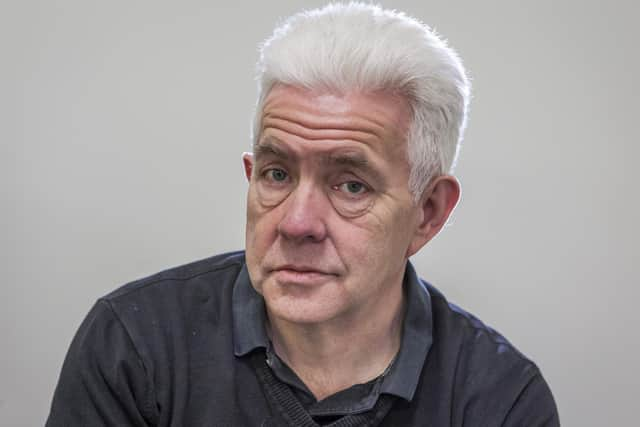Ian McMillan on why he loves the work of Michael Longley
I like to think that I’m growing alongside them, bringing my life into my reading so that as an older man I read their work very differently to the way I took it in in my twenties.
One poet I’ve been reading and re-reading for years is the brilliant Northern Irish poet Michael Longley, who I first came across in 1976 on a writing course at the wonderful Lumb Bank in Heptonstall, near Hebden Bridge. I was one of the students and one of the tutors was Longley.
Advertisement
Hide AdAdvertisement
Hide AdI vividly remember one session with him; we were sitting in the garden as the heat of the day subsided into a warm evening. I showed him one of my recent poems, a poem that (between you and me) I was quite pleased with. He read it and read it again. He shook his head. “It’s all right,” he said. In the distance I heard a train rattling down the Calder Valley line. “It’s all right, but where’s the music? Where’s the music, Ian?” He held my gaze until I began to stare at my shoes.


He was right, of course; so much poetry has its origins in song that a poem can be much more effective if the lines appear to sing. At the time I was stung but over the years I’ve tried to take his response to my poem to heart, and since then I’ve been an avid reader of his, yes, musical work.
In his early books there’s a lot of rhyme and the poems are longer than they become in later years, when the rhyme starts to fade into a kind of chiming, where echoes of words almost sound the same as the ghosts of other words.
So for example in his first collection No Continuing City, in a poem called The Ornithological Section about stuffed birds in a museum, he rhymes “ornithologists” with “have persists”, and “tattered skins” with “love begins”, and the poem is six eight-line verses long. By contrast, in his 2020 collection The Candlelight Master there’s a tiny three-line poem called Inkwell that reads: “She gave him a sprig of cherry blossom/which he placed in his inkwell. The black/wrote its message over every petal.” Apart from the beautiful visual image here, reminding me that Longley’s daughter is a painter, I love the way that the double s sound in “blossom” seems to ripple into “message” and the sharp i in “sprig” finds a distant partner in the i of “inkwell”.
Advertisement
Hide AdAdvertisement
Hide AdAnd there’s the music, of course, refined and perhaps made more minimal over the years, but still sounding out from the finely-tuned poetic instruments that Longley has made his own. I urge you, if you don’t know his work, to seek it out, perhaps with his Collected Poems, and follow the life journey of a poet who writes poems that, as the late Helen Dunmore said, “rest on the page like driftwood”.
Comment Guidelines
National World encourages reader discussion on our stories. User feedback, insights and back-and-forth exchanges add a rich layer of context to reporting. Please review our Community Guidelines before commenting.